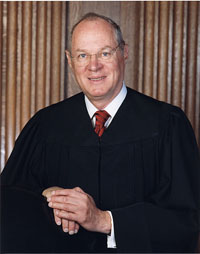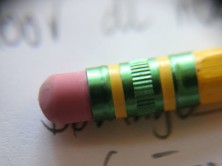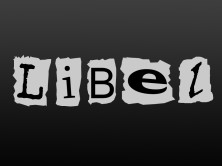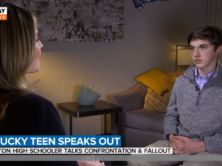
Supreme Court Justice Anthony M. Kennedy, pictured above, was criticized after a staff member told student reporters to show him their story before publication. Now he says that's not his policy.
Supreme Court Justice Anthony Kennedy has responded to criticism of his restraint on the Dalton school’s newspaper in an interview with the Wall Street Journal, explaining that it is not his policy to review student reporting before it is published.
However, in at least one other instance this year, Kennedy’s staff has mistakenly told students that the Justice asked to approve some content of their stories before publication.
In explaining Justice Kennedy’s true stance on student media, Wall Street Journal reporter Jess Braven writes, “He never asked to clear the copy before publication. He said the request came from a new employee who misunderstood his longtime rule for classroom visits: no outside media, but campus reporters are welcome.”
Kennedy argues that the request to the Dalton student reporters was a mistake, and not reflective of his opinion or policy on student publications, but does accept responsibility for his employee’s error as the “captain of the ship.”
While it’s good to know that the Justice does not in fact have a policy of requiring prior approval on news stories, Kennedy and his office perhaps should have been more careful in making sure his policy was clear to the students at Dalton, who may have received a misleading message from their experience with the Justice’s staff. As StinkyJournalism wrote at the time,
The issue here is twofold. In an extreme interpretation, this could be construed as Justice Kennedy imposing a prior restraint against The Daltonian. Prior restraint is the censorship of the press by government order from publishing some set of information, and Kennedy is, after all, a member of the U.S. government.
Of course, Justice Kennedy could have been acting merely as a civilian here, in which case this isn’t a case of prior restraint. It is, however, still an ethical issue, because Kennedy’s request creates an impingement of journalistic independence, itself an important lesson for student journalists… Reporters are often advised to refrain from even letting a source or subject buy them a sandwich, let alone allow their source to view and change the content of a story.
According to Braven, Kennedy has been asked to fact check quotes in professional journalism about him before, including one “’really very misleading profile’ in one magazine that he says he couldn’t correct because it would have required getting into ‘confidential stuff.’”
This seems to have been what he thought was happening when Dalton students emailed him their story before publication. Braven writes, “Justice Kennedy said, ‘ I get an email from the student paper, Would I please comment on the article?’ He says he thought the students were asking for his help in fact-checking, and he didn’t realize they were under the belief they needed his permission to publish the article.
Kennedy told the Wall Street Journal that he found one error in the Dalton article, and says the incident and resulting critiques of him in the press have “left him with some suggestions for budding journalists.”
“Journalism 1A: Get the facts right,” he said. “The fact that you have something of a gotcha doesn’t mean you have to run with a story. There’s almost an urge to run with a story before you find out that it doesn’t have any legs.”
But if this was Justice Kennedy’s takeaway from this experience, it seems to be missing the point. Especially considering that a similar miscommunication took place in October with a lecture the Justice gave to students at George Washington University. Braven writes in a separate Wall Street Journal article,
In an Oct. 13 email to student reporters, a George Washington law school public-relations official wrote that “the Supreme Court’s Public Information Office has asked to approve any quotes you use from the justice’s speech.”
Justice Kennedy said he didn’t know about the request. When he received quotations from a school publication, he thought the student reporter was seeking only to verify the transcription, he said.
Yes, journalists must get the facts right. And, yes, they shouldn’t rush to print without checking the facts. Many reporters embrace and encourage the practice of reading quotes to sources to check them, and even in some special circumstances allowing a source to read a whole article to check its accuracy (especially in highly technical or scientific journalism). But this must always be the decision of the journalist. It seems Justice Kennedy himself (via his staff) has failed to get that fact right in two separate interactions with the student press.
Kennedy’s message to the Wall Street Journal that he thought he was fact-checking may be true, but it glosses over the lesson that fact-checking was not what his office encouraged either the Dalton students or the GWU students to do. It doesn’t excuse the fact that these students were misdirected.
The Wall Street Journal also points out how incongruous Justice Kennedy’s enthusiasm for quote-review is considering some of his previous legal opinions, including one quoted by the Journal:
“Writers and reporters by necessity alter what people say, at the very least to eliminate grammatical and syntactical infelicities,” Justice Kennedy wrote in Masson v. New Yorker Magazine… Practical necessities such as the need “to make intelligible a speaker’s perhaps rambling comments” make it “misleading to suggest that a quotation will be reconstructed with complete accuracy.”
Our hope is that Justice Kennedy’s true policy on student reporting will be more clear in future engagements with young journalists. We contacted Dalton editors to ask for comment and will update this post with any response.






